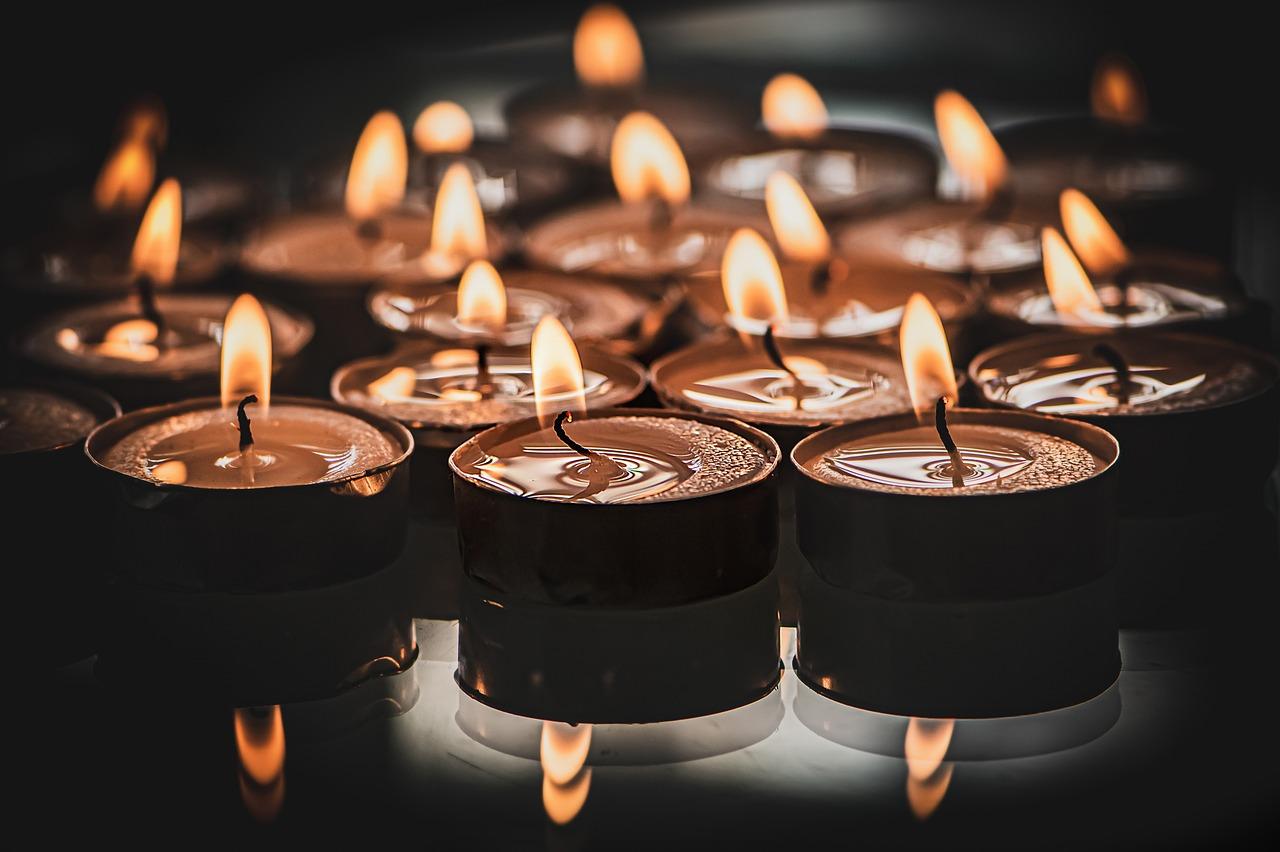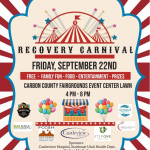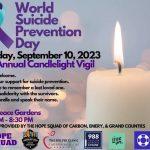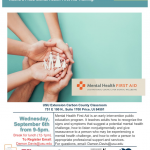By Amanda McIntosh, Kris Henderson and Mersades Morgan
Recovery Month
“National Recovery Month (Recovery Month), which started in 1989, is a national observance held every September to promote and support new evidence-based treatment and recovery practices, the nation’s strong and proud recovery community, and the dedication of service providers and communities who make recovery in all its forms possible (SAMHSA).”
We know that substance use disorder (SUD) recovery is possible and everyone deserves a chance at recovery. Whether it be through a traditional 12 step program such AA or NA, Dharma (a Buddhist based meditation,) or a medically assisted program, recovery is not rare, nor is it random.
In Carbon, Emery, and Grand counties, we have a multitude of pathways that support recovery in whichever way a person seeking recovery feels most comfortable or where they can be most successful in their recovery journey. Through community partnerships, strong relationships with our law enforcement agencies and referrals, the gap continues to be welded together.
The community relationships offer opportunities for people with SUD to find their own individualized recovery. We know the road to recovery looks different for everyone, but it is not just for the “lucky” – every day is a new opportunity to find recovery.
The Utah Support Advocates for Recovery Awareness (USARA’s) mission is to connect and inspire communities to advocate for SUD recovery. We envision a Utah where recovery, community and connection are recognized as the most valuable assets for people to recover from SUD. USARA of Price offers many of these routes to recovery, such as Dharma, Coffee & Recovery, Step Sisters AA meetings, Wellbriety, Saturday Solutions and NA, just to name a few.
Suicide Prevention and Awareness Month:
Recovery and mental health are often talked about in the same breath. They are both significant and impactful to the community as a whole, especially after a loss. Whether you have been directly affected by a death by suicide or not, the chances are someone you know has been.
It is important to know what is acceptable and appreciated after a loss. What is the proper etiquette? Is what you are saying helpful or hurtful? Should you say anything at all and if so, what?
If you are lucky enough to have never experienced the loss of a loved one to suicide or an overdose, refrain from using phrases such as “I know how you feel,” or “I felt the same way when I lost…” Everyone experiences grief and the healing process differently and it’s possible that no two people will feel the same way about a loss. It may be intended to connect and show empathy to the griever, but can invalidate their own experience and could cause them to retreat from their emotions.
Instead, you can show support by saying “this is a tremendous loss, would you like to talk about it?” Even if you have experienced something similar, allowing the person to talk from their perspective may help them process the loss.
As individuals, as family units, as a community, we have beliefs and we have values that do not align with everyone you come into contact with. Presuming that a griever holds the same beliefs as you do and imposing those beliefs on the griever could potentially have negative consequences.
An example would be telling a newly-widowed person after a loss to an overdose that “it’s a shame they overdosed, now they will spend eternity in purgatory.” Not only does this assume the widow shares the same beliefs on the afterlife, but could steer them away from a religious/spiritual route to healing. Religion is a protective factor, but not everyone believes in an after-world. Heavily religious, matter-of-fact statements are not always helpful nor hopeful.
Too often after a suicide or overdose, people will make other hurtful remarks about the death in an effort to make sense of it, get out frustration, or to help ease the pain associated with the loss. This looks like resorting to name calling, such as “selfish,” “coward,” “a wasted life,” “weak” or “sinful.”
These remarks are not always perceived as helpful or healing, but in fact can be harmful. It is not necessarily a true depiction of the nature of the loss or the person who has died. Please be mindful to avoid adding salt to the wound of a griever.
According to Nationwide Children’s website, “viewing suicide as a choice promotes the misunderstanding that people who engage in suicidal behavior are selfish. Selfishness has been defined by Merriam-Webster as ‘seeking or concentrating on one’s own advantage, pleasure, or well-being without regard for others.'”
Suicide does not generate pleasure, advantage or well-being. People who take their own lives commonly feel like a burden to others or experience intense emotional pain that overwhelms their capacity to continue with life. Making others feel guilty is typically the furthest thing from their mind.
What are some things you can say and do that are helpful? First and foremost, being present. When someone you love is experiencing grief, be there for them in any capacity that you can. That can look like phone calls, texts, cards, taking a walk with them, allowing them to cry and to talk freely without judgement or trying to lighten the mood, offering to run errands or clean their house.
These acts should continue long after the funeral. When everyone has come and gone for the services, grief continues, and it can be that much harder once the family and friends have paid their respects. It is at that point the griever feels the actual weight of their loss. Life moves on, but the griever is still trying to make sense of what their new reality looks and feels like.
Offering to bring in a meal to the family a few days after the funeral or providing gift cards for a future use on a meal/coffee/activity is an excellent way to support the grievers and to let them know you are thinking about them, care about them and support them. Saying “let me know if you need anything” is a beautiful thought, but rarely initiated by the griever. Defining what “anything” means puts the burden on the family to determine, which can be difficult after loss.
Grieving is not linear and there are not “stages” that need to be completed or moved through. Yes, there are key emotions/feelings many people will experience, but for the most part, people will move in and out of these emotions for the rest of their lives, and that’s okay. There is no expiration date for grief or “being over it,” either.
In an effort to be more supportive and sensitive to the process of grief, please don’t rush someone’s healing. Their journey is not yours and the impact of their loss may be greater than you could ever imagine. Instead, encourage them to talk about their loved one. There is nothing more healing than knowing that others still remember our loved ones and the joy they brought to our lives.
Because Recovery month and Suicide Prevention Month are recognized in the same month, the community is invited to celebrate and learn together all month long. There is a plethora of events to attend to show your love, concern, sympathy, and support to the lives lost to both substance use and mental health. You can learn so much from the people with lived experience who are constantly fighting for more awareness and resources in Southeast Utah.
A few local events, include:
Aug. 31, 2023 – A Light to Remember (Overdose Awareness Day)
Sept. 6, 2023 – Mental Health First Aid Training
Sept. 8, 2023 – USARA Recovery Days in Price
Sept. 10, 2023 – Candlelight Vigil for WSPD
Sept. 16, 2023 – Annual Walk to Fight Suicide w/AFSP
Sept. 22, 2023 – Recovery Carnival
Oct. 24-26, 2023 – 2023 Opioid & Stimulant Wellness Summit









